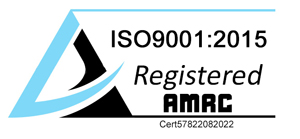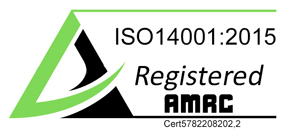The Extrusion Process
The benefits of aluminium extrusion
Other forms of metalwork fabrication such as machining and casting are flawed in a variety of ways when compared to extrusion, the major benefits include:
Lighter – Extruded aluminium has a very high strength-to-weight ratio. When the weight of a structure built in aluminium is compared to that of an industry comparable material such as steel, the resulting weight can easily be halved without compromising on strength.
Easy on the eye – Options for finishing aluminium profiles are many. Through powder coating, designers and manufacturers can add any colour they should wish whilst adding an extra layer of anti-corrosive protection in the process.
Cost effective – Because specific shapes are designed and manufactured through extrusion from the outset, the whole process is faster, more efficient and involves less waste of raw materials. Prototype costs are also lower than that of processes involved in casting, rolling and forging.
Durable – Paint finishes and powder-coating aside, aluminium is by nature a very durable metal that ages very well in comparison to other widely used metals.
The many applications of aluminium extrusions
Thanks to its versatility, durability and cost-effectiveness, extruded aluminium is used across a variety of industries and has innumerable applications. Examples of its most widely used applications include:
Mighty – Where a high strength-to-weight ratio is crucial, such as in the production of engine blocks or transmissions housing, extruded aluminium is a perfect solution. In fact aluminium profiles are used for panel production and chassis construction in the railway, aeronautic, maritime and automotive industries for the self-same reason. Extrusion is even used to fabricate component parts for spacecraft.
Heat conductivity – Aluminium conducts heat extremely efficiently which is why it is present in a plethora of products across a range of industries, from car radiators and condensers to nuclear reactors and computer cooling elements.
Rust-resistant – Thanks to a naturally occurring oxidisation on the surface of aluminium, it is naturally resistant to corrosion making it invaluable within the building industry for both structural construction and exterior cladding. On top of this, aluminium retains its strength and is regularly flexible when subjected to excessive loads.
Magnetism – Take all of the latterly mentioned attributes of aluminium, then add its non-magnetic properties to the list and this is why extrusion is used to make robust and durable housing for wire in very high voltage applications, or where magnetic fields are at play.
In short, aluminium extrusion plays a vital role across a wide variety of industries, its useful properties as a metal are abundant and the process of extrusion itself allows for almost endless applications.
Experienced Designers & Manufacturers
We create aluminium profiles and extrusions, designed and manufactured especially to suit your requirements. Contact our team today to arrange a quote and see how our service can help your business.
Flexible Volumes of Product
For one of pieces or larger bulk order, simply get in touch with our team today to get the ball rolling and start our bespoke design process.


